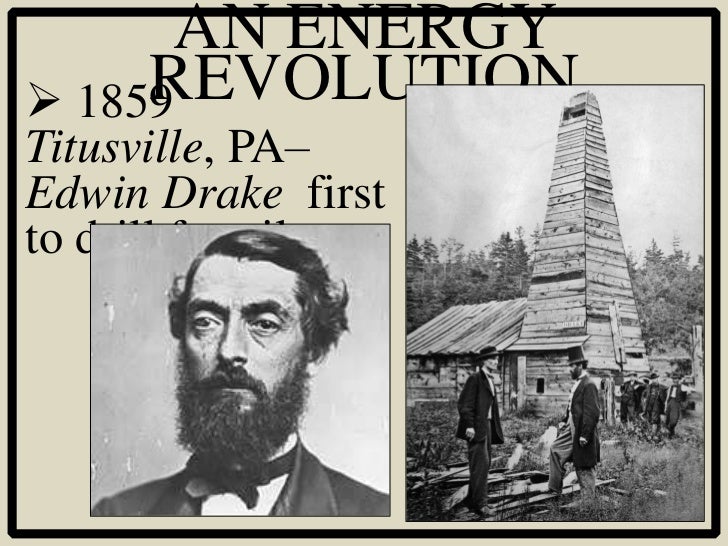

The films are available for research viewing on VHS reference copies. This collection includes 150 motion pictures – from which single frames may be captured.Īlthough offering no online videos, the Smithsonian Institution’s National Museum of American History Archives Center holds Approximately 120 episodes of the “Industry on Parade,” a film collection from 1950 to 1960. The AFA defines academic film as any film in the broad subject areas of the Humanities and Sciences which were sold.”
#Edwin l drake archive#
The films record a wide variety of industrial jobs, and events, including such rarities as the Edison film “Destruction of Standard Oil Company’s plant at Bayonne, N.J., by fire on July 5th, 1900.” The films are keyword searchable, well indexed and can be downloaded.Īcademic Film Archive of North America: “The mission of The Academic Film Archive of North America (AFA) is to acquire, preserve, document, and promote academic film by providing an archive, resource, and forum for continuing scholarly advancement and public exhibition. More than 60 videos are also available in other American Memory presentations, including the library’s Motion Picture & Television Reading Room. The American Memory project is part of the Motion Picture, Broadcasting and Recorded Sound Division of the Library of Congress in Washington, DC.Īmerica at Work, America at Leisure: Motion Pictures from 1884 to 1915 features job, school, and leisure activities in the United States in 150 motion pictures, 88 of which are digitized for the first time. The collection includes downloadable files in a variety of formats, for example, the 13-minute “Destination Earth,” (see below) a 1956 cartoon by the American Petroleum Institute. The collection includes media produced by and for hundreds of corporations, nonprofit organizations, trade associations, community and interest groups, and educational institutions. The archives was founded in 1983 by Rick Prelinger in New York City. This online archives offers still and motion media, including the Prelinger Archives – which collects, preserves, and facilitates access to films of historic significance.
#Edwin l drake free#
Like a paper library, it provides free access to researchers, historians, scholars, and the general public.

The Internet Archive is building a digital library of Internet sites and other cultural artifacts in digital form. The Internet Archive is a nonprofit organization that offers free still and motion media online. Be sure to examine each site’s copyright requirements. Note that at some sites, downloading materials for personal use with proper attribution of the source is permitted however, this sometimes does not grant permission to publish.

We encourage follow-up calls and emails that help AOGHS maintain and expand its links for future mage researchers. Visit here again, because this list will grow.

The following links are some easily accessible resources. Oil and gas museums also keep local videos and document oral histories. Often in response to requests for photography resources, the society also has researched petroleum history video links. Suggestions are always welcomed via the Comments Page. The American Oil & Gas Historical’s “Oil History Movies” offers a small selection of interesting links. Many public domain archives provide free access to early documentaries relating to the history, including the earth sciences, geology, etc. petroleum exploration, production and transportation industries. The history of American radio, TV, and film offers portrayals of the U.S.
#Edwin l drake movie#
This 1940 movie was nominated for two Academy Awards. Clark Gable worked in Oklahoma oilfields as a teenager before moving to Hollywood.


 0 kommentar(er)
0 kommentar(er)
